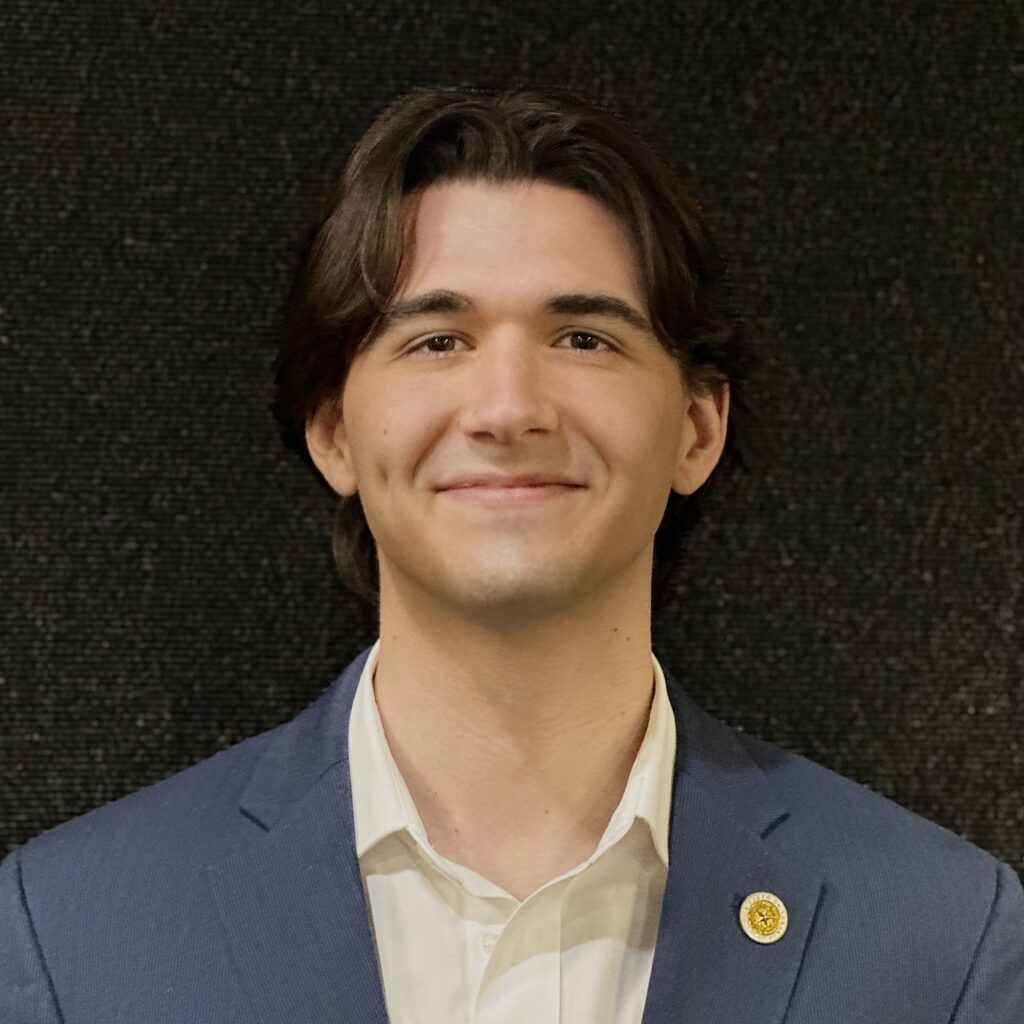Student Spotlight: Catching Valentinis-Dee
Unwanted controversy: The Plight of Conservative College Students
“Progressivism is the default political view on campus; anyone with a differing perspective is dissuaded from speaking their mind out of fear of becoming the center of unwanted controversy.”

Catching Valentinis-Dee
Texas State University Alumni ‘23
Majored in Urban and Regional Planning
*Interned with Speech First in Spring of 2023
You recently graduated from Texas State University this May. What do you have to say about your experience as a conservative student on campus over the past four years?
Progressivism is the default political view on campus; anyone with a differing perspective is dissuaded from speaking their mind out of fear of becoming the center of unwanted controversy. For the majority of my time at Texas State, I avoided expressing my political opinions due to the fact that deviating from the mainstream would irreversibly damage my relationships with university partners I worked with as a student leader.
During your time at Texas State, you were hesitant to speak up out of fear of repercussions from your professors. How do you think universities should hold faculty accountable to prevent this environment of chilled speech?
As a student of the university’s College of Liberal Arts, the grading of most assignments was highly subjective. This subjectivity creates an inability to reconcile bias in grading without explicit record or statement of bias. Censorship is a cornerstone of successful progressivism; publicly affiliated professors must be removed in order to begin any attempt at restoring free speech in higher education.
You earned your degree in Urban and Regional Planning from Texas State. Although this wasn’t a Political Science-related degree, how often did politics come up in your classes? Was there a particular viewpoint or ideology that was given more credence?
While beholden to principles of the discipline, Urban and Regional Planning remains a significantly political discipline due to its relationship with governance structures. Even so, the intersection of identity and planning was so excessively examined in each planning course of the program that I couldn’t help but consider the value lost while ruminating about the natures of ‘gendered space’.
You were Student Body President 2020-2021. How did being a part of Student Government help shape your political views and your overall educational experience? Did it give you a different perspective?
Texas State required masks on campus during my term. After unsuccessful attempts to change the policy internally, I spoke out against the policy publicly. My personal information was posted online and I received death threats; I was accosted by professors and students alike. This was a brief but important season of my term where I learned the importance of standing up for what I believe.
Separately, all my meetings with university administration, vendors, officials, staff, and faculty while Student Body President revealed a clear reality: as good as anyone’s intention may be, regardless of tax status – the university is a business. Students, donors, and governments all pay for the privilege of affiliating with the institution’s brand by funding its activity. Over centuries, this university model has been fortified to protect its survival and by extension, the persistence of its progressive occupiers.
Now that you’ve graduated, do you feel prepared for the professional world? What could Texas State have done differently to provide a better and more well-rounded academic experience? I selected my program due to its strong relationships with employers and grounding in local industry. However, most degree programs lack any requirement that would facilitate relationship-building with potential employers long before graduation. The current model employed by many programs is irresponsible, unethical, and incompatible with the story sold to tuition-paying students that a degree guarantees a job post-graduation.
